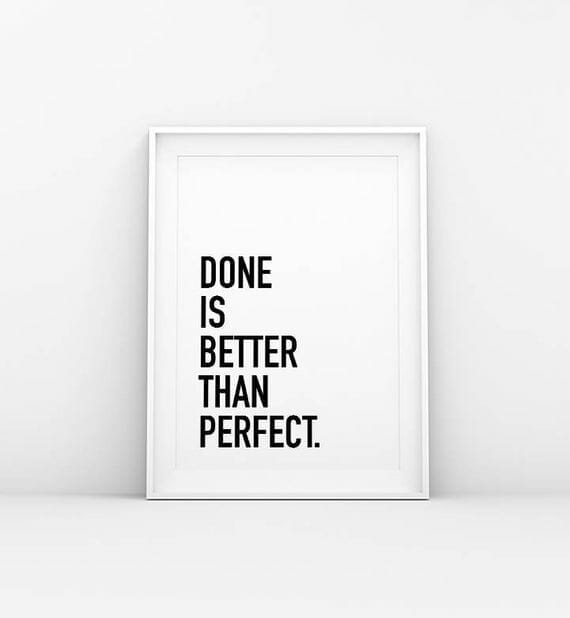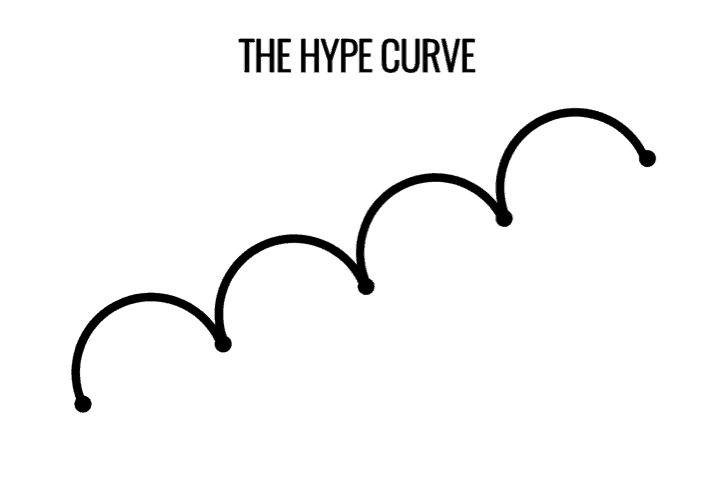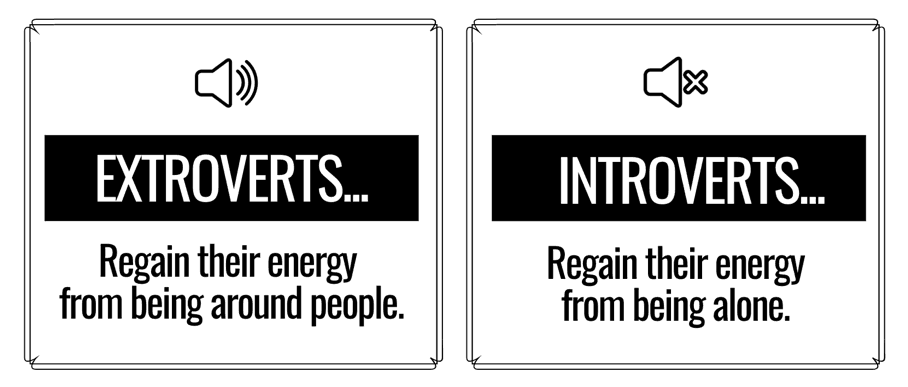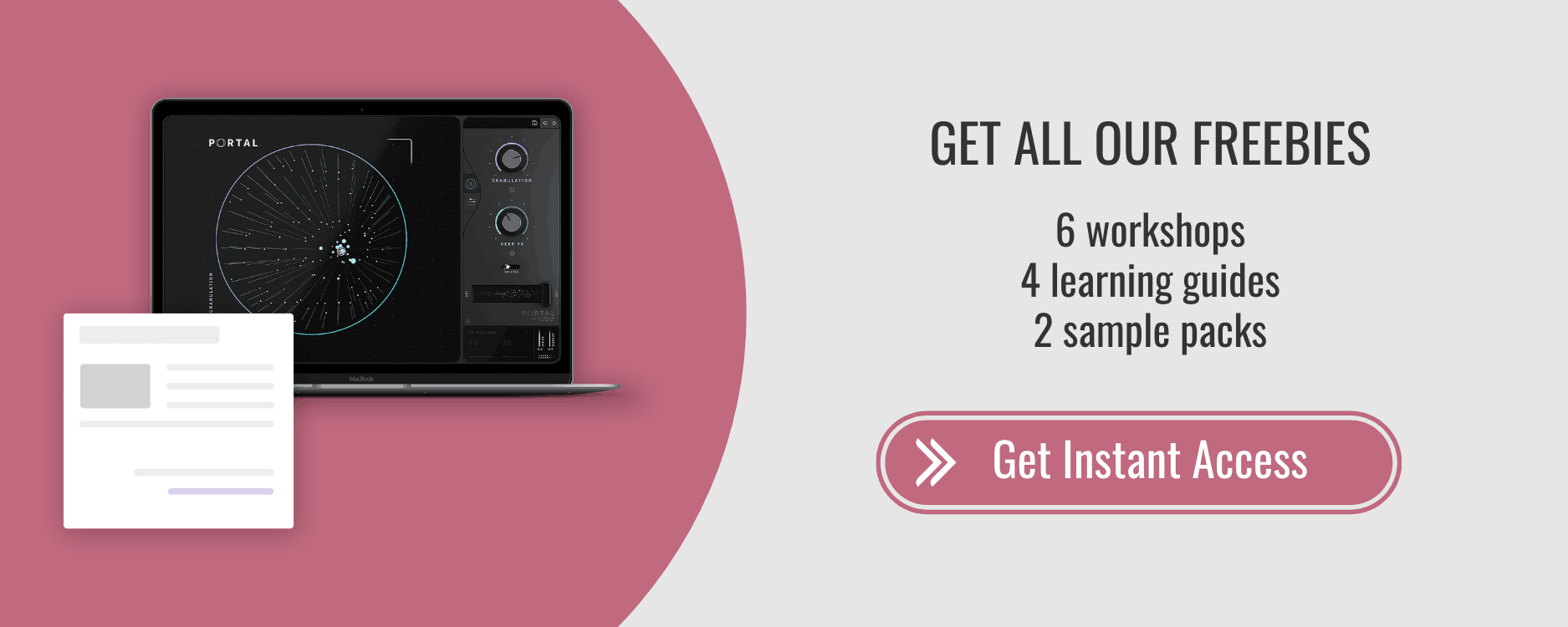Fuck Moderation: 7 Backward Lessons in Music Production That Might Piss You Off
“The moment that you feel, just possibly, you are walking down the street naked, exposing too much of your heart and your mind, and what exists on the inside, showing too much of yourself...
That is the moment, you might be starting to get it right.”
— Neil Gaiman
Let's face it. The majority of lessons in music production you find around the internet suck.
So let me start with a quick story...
You see, I get the occasional email from students asking why it seems that I "don’t struggle much when it comes to producing music."
Students have mentioned that I “always seem to know what to do” and that I appear to be a very “evolved” music producer.
One of my biggest lessons in music production was admitting to myself one thing — or all intents and purposes, I’m a total fuck up.
My entire life is a set of systems of accountability, tools, or strategies to prevent me from becoming the worst version of myself.
You know, that version of myself that wants to play video games, order some Thai food, and generally just be a lazy piece of shit.
The late Anthony Bourdain said it much better than I ever could. Here's what he said:
“I understand there’s a guy inside me who wants to lay in bed, smoke weed all day, and watch cartoons and old movies. My whole life is a series of stratagems to avoid and outwit that guy.”
If I’m being very honest, I've ignored some of the most important lessons in music production because I've always felt like a bit of a fraud. Chalk it up to imposter syndrome, chalk it up to insecurities, or maybe even modesty…
It doesn’t really matter.
These are a few lessons in music production I did as an up and coming producer that I can’t honestly recommend with good faith.
There are certain things I did that I wouldn’t call healthy or sustainable, and yet, none-the-less, some of these backwards strategies worked. In fact, some of these backwards strategies worked very well.
These are some of the strategies that helped me work with labels like Universal, Island, Sony, Ultra & Armada, and remix artists like Beyonce, Tove Lo, Nick Jonas and the Neon Trees.
That said, here are 7 backwards lessons in music production that most educators and music production instructions would simply NEVER share.

1. Avoid Trying to Write the Perfect Song
For me, this is one of the ultimate lessons in music production.
You see, I used to think that perfectionism was a good quality.
In fact, I used to brag about it.
But in reality, being a perfectionist sucks — it’s practically a plague. It means that you are afraid to put anything out there unless you have meticulously, thoroughly checked and perfected every last bit of your work.
To me, perfectionism translates to fear. Perfectionists have a lot of insecurity and think they need to impose their will so violently and desperately on their creative work that their art simply can NOT be good enough without it.
At Hyperbits Music, we teach quantity over quality. That is, only by repeating the ENTIRE process of creating and finishing music will ever learn how to get better at the entire process. Not half-finished ideas. Not lots of melodies. Not lots of riffs and 8-bar loops.
I’m talking finished, 100% complete songs.
This lesson is music production is the only thing that matters.
Being forced to finish a song on a schedule makes you realize that every song can’t be THAT perfect. Every song can’t be treated like it’s life or death. If it was, you’d drive yourself insane.
By all means, you should still try hard on every song you ever create — do the best you can.
But almost every artist would agree — if given the chance to change a few little things about their music after its release, they almost always would. Rivers Cuomo of Weezer has publicly stated this in interviews many times.
So what does this all mean?
It means we all need to stop being perfectionists and put the idea of finishing music before the idea of being perfect.

2. Avoid Hustling
This is one of the many lesson in music production that may seem counterintuitive. Today’s world is all about doing more. Work harder. Life hacks. Push yourself. Hustle. Sleep less.
My thoughts on the matter? It’s unsustainable.
Hear me out...
Everyone knows THE artist hustler — you know, the artist that is practically shoving flyers in people’s faces to get them to come to shows, the artist who begs for FB likes and Instagram followers and remix competition votes…
We all know him.
And if I had to bet, I’d bet this artist doesn’t have much strategy. This type of desperate marketing is what leads to artists running around with their heads cut off. It leads to burn out, exhaustion, and is fueled by anxiety.
And quite frankly, this type of marketing simply doesn’t work in 2020. Hustling is a thing of the past.
Artists who swear by hustling let anxiety run the ship. After all, hustling is an outward expression of your anxieties, fueling this idea that you should always do more.
Plus, hustling turns a marathon into a sprint. Of course, there is nothing wrong with working hard when you pair it with working smart — but more work does not always breed more success.
In fact, I would argue that success needs to come to you. If no one wants to manage you, if no label reaches out to you, if no one wants to book you for a show — maybe — just maybe, your music isn’t quite ready for the world (or you need to grow your fanbase).
Look, it’s ok to slow down. Downtime is necessary for our ideas to flourish and grow.
Besides, let’s define hustling for what it REALLY is: an ultimately empty, depressing, and destructive lifestyle that promotes reactionary measures over deep thinking and strategy.

3. Avoid Constructive Criticism
When I first started making music, it seemed like constructive criticism was the holy-grail of all music production advice I read online. It was the ultimate lesson in music production. This was a hard lesson in music production to unlearn.
We’ve ALL heard it: just get feedback, apply the changes, and rinse & repeat. Easy-peezy.
And to some extent, this is true. Getting good quality feedback can be very helpful. The problem is, the majority of people offering feedback are just as lost and clueless when it comes to their music as everyone else.
So what do you think happened when I started to reach out to everyone I could for constructive criticism?
Well, naturally, I got a lot of conflicting advice.
Some people told me my music had too much going on, others said it was too simple. Some people said the low end was too thin, others told me it was too bass heavy. Some flat out told me I wasn’t good enough to make music. Others said it was the best thing they ever heard.
The point here, is that generally speaking, the feedback was inconsistent and quite frankly, not too helpful.
It wasn’t until I eventually narrowed my attention and signed up for a music production school that my music exponentially improved.
Why is that?
I began to collect feedback from 1-2 high-level people. Not 5, not 10, not 20...just 1 or 2.
Too many cooks in the kitchen leads to confusion and chaos.
And other artists agree. In a recent interview with Joey Suki, a prominent electronic dance music producer named Jay Hardaway shared a story when he sent a track called ‘Electric Elephants’ to Martin Garrix for feedback.
Long story short, Martin wasn’t into the drop. But Jay Hardaway disregarded the feedback, left it alone, and the song actually went on to become a major hit.
The takeaway here is this — avoid relying on constructive criticism. Half the time the feedback you get is either down-right wrong or lazy at best.
Plus, at the end of the day, you can’t please everyone.
Instead, seek out 1 or 2 talented, high quality producers who can give in-depth feedback on a somewhat consistent basis.
Over time, learn from the consistent feedback to develop your own standards for quality and professionalism.

4. Avoid Marketing Your Music Too Early
When it comes to lessons in music production, a lot of advice I come across on the internet suggests that it is never too early to start releasing music.
But the truth is, if you’re marketing correctly, that process is going to be quite time intensive. That, in turn, takes away time and energy that could be spent producing and making better quality music.
Plus, once you do actually start releasing music, in an ideal world, you should continue releasing on a regular schedule.
On top of that, once you do start releasing, every song should out-perform the prior release. That way, there is always upward momentum.
This is something the guys over at Heroic Academy have coined The Hype Curve (see below).

If you start releasing before your music is radio-ready, or before you even have proper assets and activity in place across all your socials, your releases will be wasted.
At the end of the day, this is a lesson in opportunity cost.
Why allocate so much of your resources (time & energy) into something prematurely?
Holding on to your music until you have a collection of 8-12 songs will allow you to feed your Hype Curve with consistent releases once you do finally start releasing.

5. Avoid or Hide From the World (Occasionally)
Want a truly backwards lesson in music production? Once in a while, it’s totally cool to disconnect from the world.
This idea that you always need to be social, putting yourself out there, networking and meeting people in your industry can lead to burn out.
Not all of us are extroverts. In fact, if you’re an artist, chances are, you lean more towards being an introvert. That’s totally cool.
See below for the best definition I’ve ever come across of extroverts versus introverts.

The point I’m trying to make here is fairly simple: we’re not all created equally. This is not so much lessons in music production, but more lessons of life itself. It’s totally ok to give in to your desires of being an introvert (if that’s who you are) and quietly keep your head down and getting to work on your craft.
Besides, regardless of whether or not you are an introvert or extrovert, I believe it is the moments in life when you are NOT reacting or responding to stimulus that allows your mind to grow and better understand both your craft and yourself.
So look, do yourself a favor, exercise some self love and do whatever it takes to be kind to yourself, even if that means staying home and turning off the world (every now and then).

6. Avoid Your Influences
Ok, ok...before you hate on this idea, listen up (I'm totally aware this might be the most backwards lesson in music production on this list).
Regardless of how you feel about his music, Lil Wayne recently admitted in an interview with Bumbu Room that he only listens to himself when it comes to Hip-Hop.
This spawned quite the backlash as thousands of fans and haters alike took to the internet to show their disapproval. After all, how could someone only listen to their own music?
The hate was extensive.
But my takeaway was completely the opposite.
You see, I believe that writing music is an extremely personal endeavor. Just because the majority of artists do things one way, it doesn’t mean that there aren’t alternative ways to be successful.
The point here is simple: whatever works, works.
Sometimes, it’s ok to avoid the artists that got you into all this in the first place. It’s ok to shut down and stop listening to new music for a few months. It’s ok to avoid your influences for some time.
Will isolating yourself and only listening to your own music work for everyone? Probably not, but you can’t deny that it works for some.
And in an era where everything is recycled, perhaps there is no better way to find your sound than to stop listening to music all together.
After all, what comes out will be entirely, 100% yours, regardless of whether or not it is any good, and that’s more than a lot of artists can say.
That said, I am a HUGE fan of using my influences to create art. In fact, here are 10 ways to steal like an artist.

7. Avoid Moderation (In Fact, F*ck Moderation)
Everyone talks about moderation as being the key to happiness, to living a balanced life.
But here's my stance: moderation breeds mediocrity.
Average people LOVE moderation because it’s their excuse to never fully commit themselves to anything. Besides, when is the last time you excelled at anything that you pursued in moderation?
Did Michael Jordan pursue basketball in moderation? Did Porter Robinson pursue electronic music in moderation?
My point is this: anything I've done that is exceptional in life has been due to being OUT of balance for a while — it has been due to the fact that I was, in fact, NOT living in moderation.
If you love making music, I'm not saying you should go and quit your job, abandon your friends and family and do nothing else with your life.
But I am saying that if you LOVE making music, if you genuinely want to make a living from it — then you owe it to yourself to put your head down and get to work.
Living out of balance is, in fact, itself a form of balance.
Even athletes have different levels of commitment and attention during the course of the year. In fact, they call it seasons — there is a pre-season, a regular season, a post-season and an off-season — this final off-season allows their bodies and minds to recover after periods of complete disregard for moderation.
That is real life. We have deadlines, new products to launch, speeches to give and goals to reach. Sometimes, we live out of balance for a while, and that is perfectly ok.
In music production, maybe it is ok to spend 6 months doing absolutely nothing other than learning chord progressions and melodies the way the late Avicii claimed he did.
The idea here is that sometimes, we must live in complete dedication to our craft. Greatness waits on the other side.

Final Thoughts
In the world of music production, we combine an artistic craft with the precision and focus of science. But the bottom line is that we all have extremely different ways to achieve similar results.
Normally, I’d highly recommend that every producer liberalizes their mind by diving deep into the core fundamentals of a successful up and coming producer: networking, education and collaboration.
But at the same time, being different and standing out is what breeds forward-thinking art and progresses culture.
So here is my call to you to NOT fall in line.
It’s an age old cliche, but go ahead and be yourself. Find your sound. And always trust your gut and intuition. I promise it will lead you exactly where you need to go.




